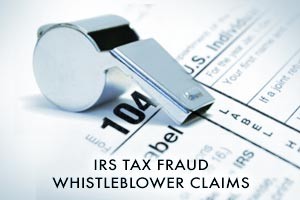 Working its way through the appellate system in the D.C. Circuit is a case that could have a major impact on the IRS Whistleblower Program.
Working its way through the appellate system in the D.C. Circuit is a case that could have a major impact on the IRS Whistleblower Program.
Since 2006, the IRS has had discretion to provide awards to whistleblowers who report information that leads to the IRS collecting proceeds of $2 million or less. For cases where the collected proceeds exceed $2 million, the IRS was required to provide an award of 15-30%.
The question presented by the appeal of Whistleblower 21276-13w v. Commissioner of Internal Revenue, 147 T.C. 121 (2016), is what exactly does “collected proceeds” mean?
In that IRS whistleblower case, the whistleblowers reported information that led to an IRS enforcement action that resulted in:
- $22 million in tax restitution;
- $22 million in criminal fines; and
- $16 million in civil forfeiture.
The IRS and the whistleblowers were able to agree on a 24% whistleblower award but could not agree on the dollar figure to which the 24% should be applied. The IRS took the position that the whistleblowers were only permitted to share in the $22 million in tax restitution while the whistleblowers argued that they should get 24% of the entire $74 million that was recovered.
The Tax Court ruled in favor of the whistleblowers, finding that “Section 7623(b)(1) is straightforward and written in expansive terms,” and that while the term “collected proceeds” is not statutorily defined, “words in a statute must be read in their context.” The Tax Court found it noteworthy that “proceeds” was elsewhere defined as “total revenue: the total amount brought in,” such that it did not make sense to limit “collected proceeds” solely to tax restitution payments.
The IRS appealed and is facing amicus briefs from Senator Chuck Grassley, the primary author of the law that created the IRS Whistleblower Office as well as a number of former prosecutors and Tax Court practitioners, all of whom are arguing that the statutory language is clearly broad and meant to provide large rewards for whistleblowers who report major fraud against the government.
At stake is a major monetary incentive for whistleblowers to come forward and report wrongdoing. Since 2007, whistleblowers have helped the IRS collect more than $3.4 billion and the number of awards has increased every year. In 2016 alone, the IRS made 418 awards to whistleblowers, which was a substantial increase from 99 in 2015 and 101 in 2014. Should the IRS win this appeal, it could save money in this particular case, but stand to lose billions if whistleblowers stop reporting fraud due to the potential rewards being greatly diminished.


